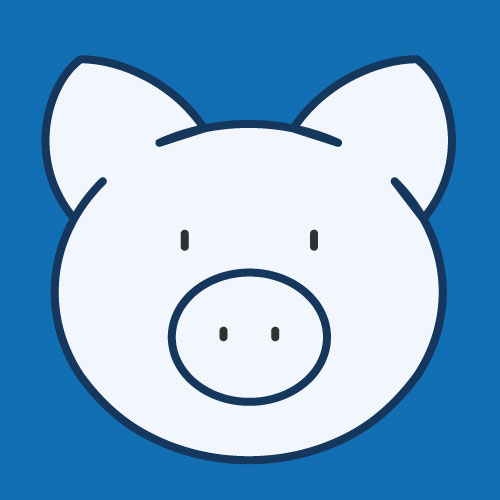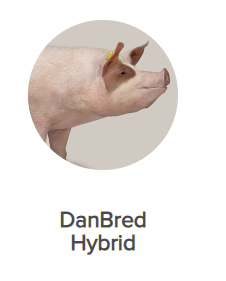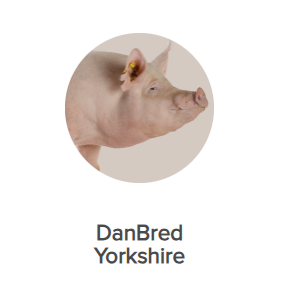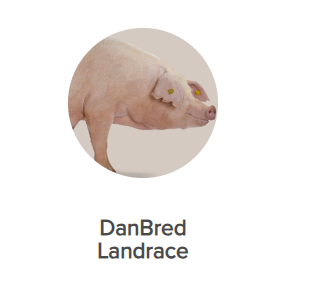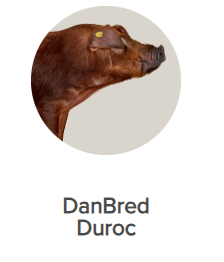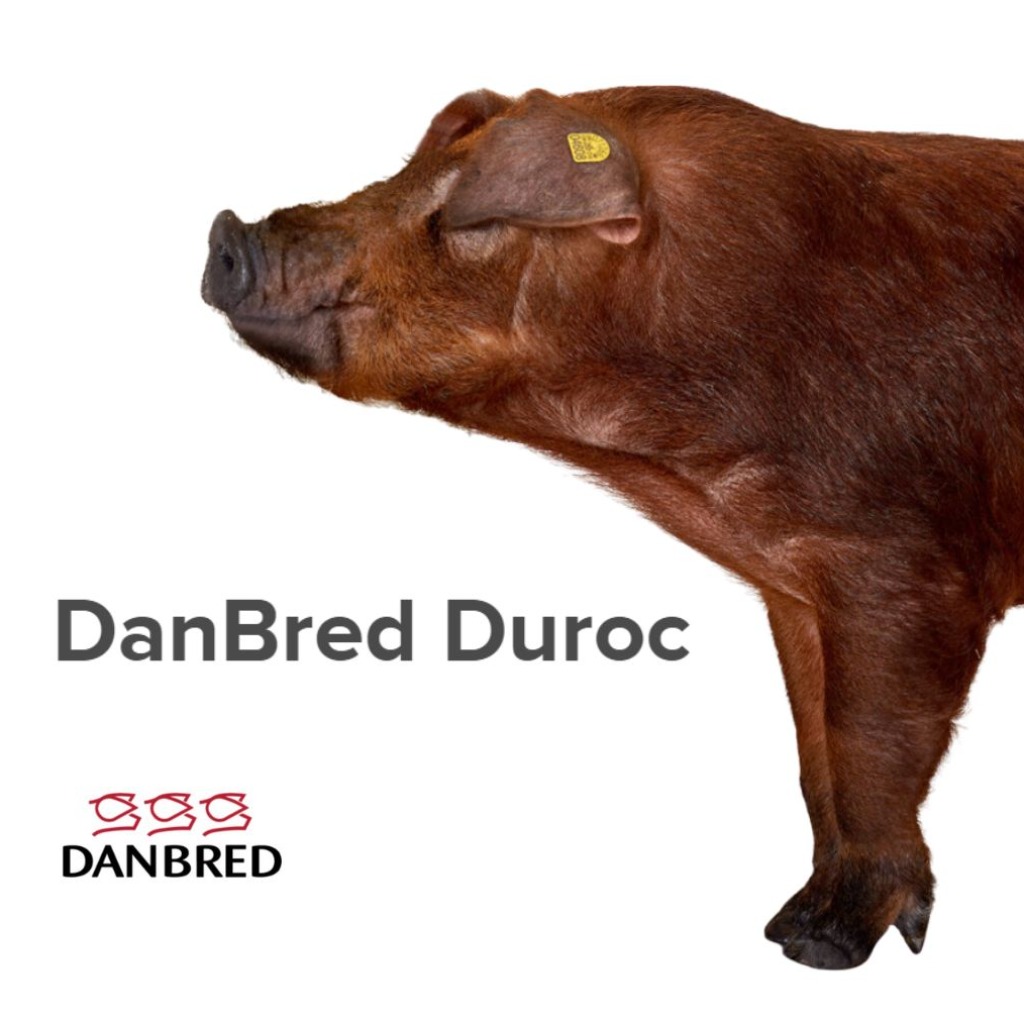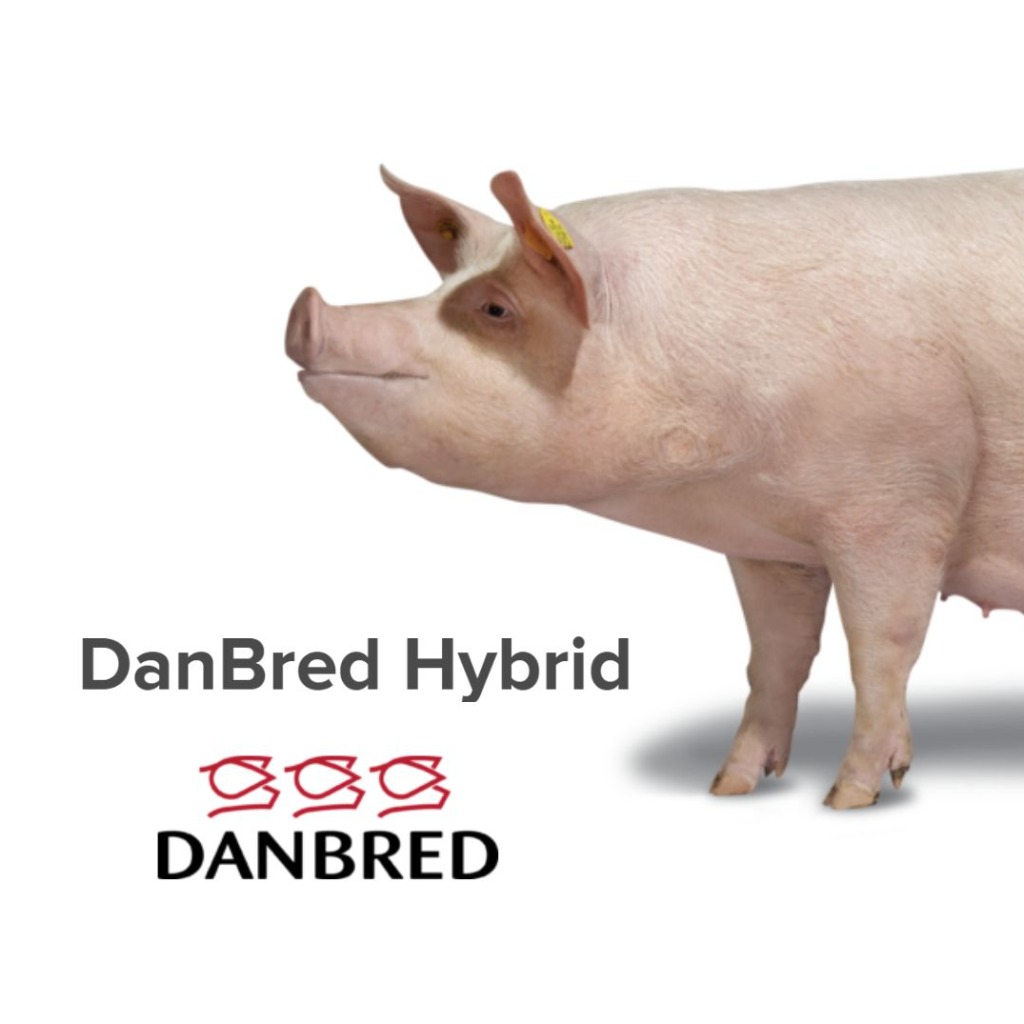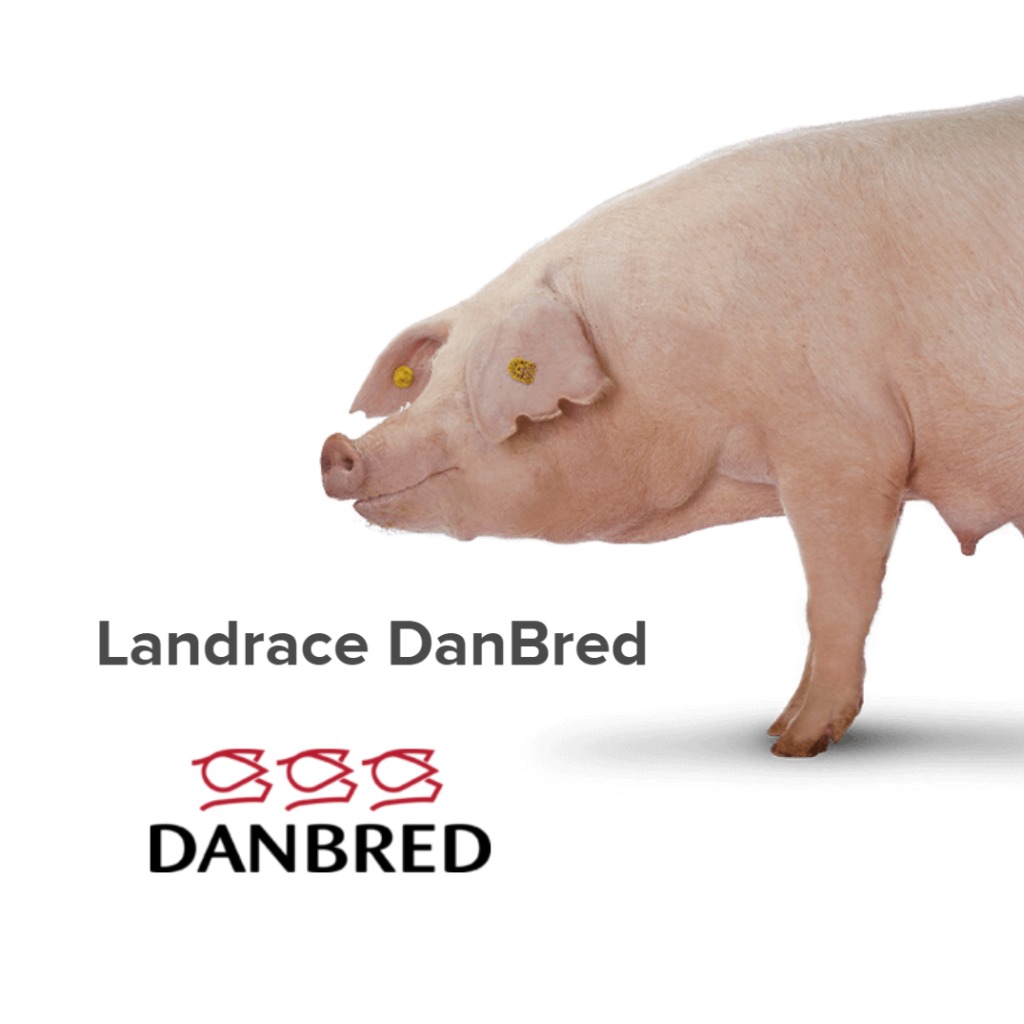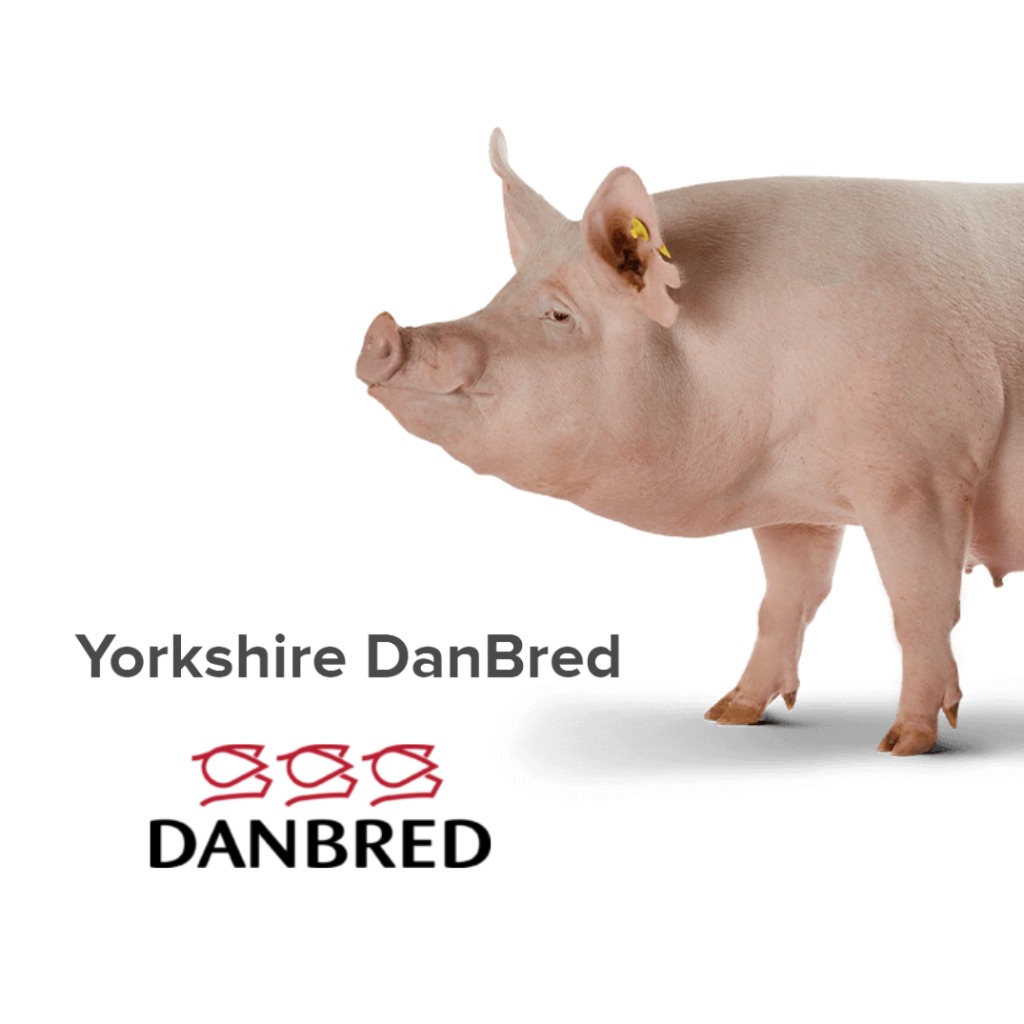Breeding for profit
The DanBred sows have excellent mothering abilities and can take care of many piglets. Therefore, it is not hard to manage DanBred animals, it is simply about allocating the right number of employees in the different units – and the results are worth it. Even in a high labour costs country, such as Denmark, your return is EUR 5,524 per sow per year with DanBred animals in your herd – based on Danish labour costs.
Distribute your strengths efficiently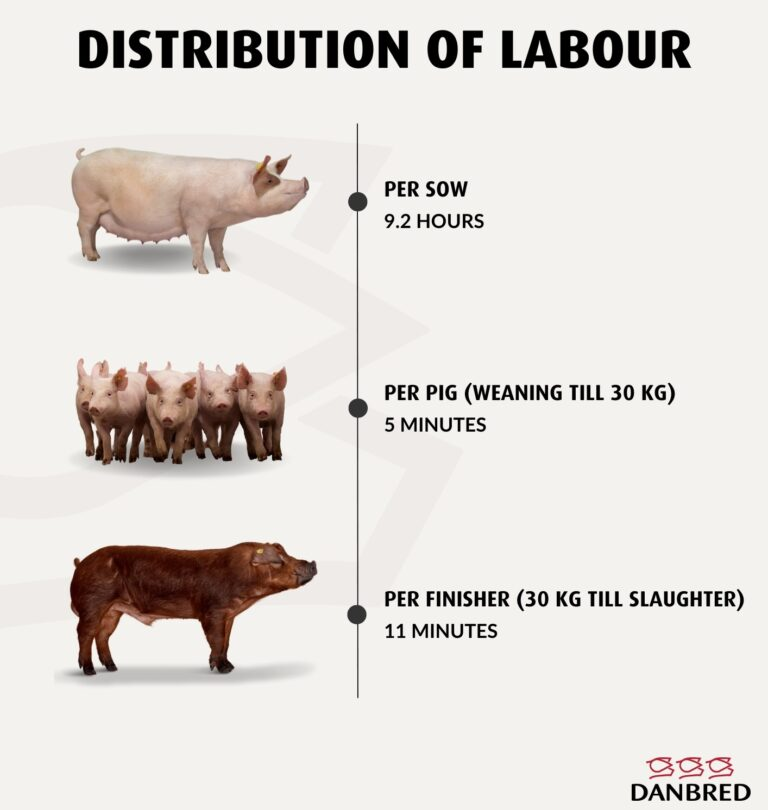
When you have DanBred animals in your herd, you only spend an average of four hours of work for the entire cycle of producing one litter, i.e., from insemination to weaning.
According to SEGES Innovation, the labour time spent per sow per year until weaning of the piglets is 9.2 hours in Danish farms [1]. Nevertheless, it is all about allocating your resources correctly, so that you get the best results. Setting aside 9.2 hours per sow, means you only need 5 minutes per pig from weaning to 30 kg, and only 11 minutes per finisher from 30 kg till slaughter [1]. A little extra effort around farrowing means a lot less efforts later in the pig’s life.
What does this mean for your bottom line?
Taking total labour time per finisher [1] into account, i.e., in the farrowing, weaner and finisher unit, the total labour cost per DanBred finisher is EUR 6.2 [2]. With the current price per pig, you earn EUR 148 per finisher [3]. That means labour costs are only 4.2 % of your total profit per DanBred finisher.
With DanBred genetics, you can produce an average of 39 finishers per sow per year (taking weaner and finisher mortality into account). So, when you have DanBred animals in your stables, you earn EUR 5,766 per sow per year.
An unnamed competitor can produce 28 finishers per sow per year. That means, with these animals in your stables, you only earn EUR 4,140 per sow per year. Hence, you earn EUR 1,626 more with DanBred animals in your stables.

Even when we consider labour costs, your return is higher with DanBred animals. Deducting the total labour costs gives you a total return of EUR 5,524 [4] per sow per year with DanBred animals! Compared to the unnamed competitor, where the profit is still only EUR 4,140 per sow per year before deducting labour costs.
That means, even if you had to spend an unrealistic 0 hours of work taking care of the animals from the unnamed competitor it does not matter, because the return cannot compare to the total return of EUR 5,524 per sow per year with DanBred genetics.
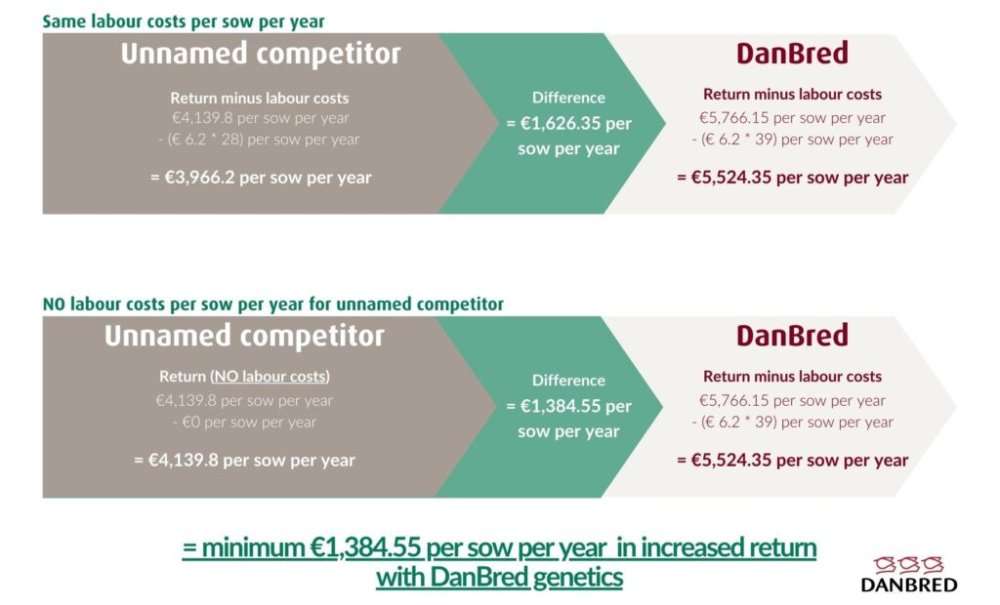
The top 5 DanBred production herds can actually wean an average of 42 pigs per sow per year. And we expect the average weaned pigs to improve even more as we start to see our newest trait in the breeding goal for increased piglet survival manifest in the production herds around the world.
Increase your profitability with the right genetics
Our job is to take care of the sow, and she takes care of the piglets. This means you do not need more employees to take care of DanBred animals. You only spend an average of four hours of work for the entire cycle of producing one litter of DanBred piglets. Even so, your profits will escalate – simply because you have more animals to sell. Even factoring in labour costs, the DanBred sow is more profitable.
Breeding for profit
DanBred always aims to ensure the highest profitability for pig producers all over the world. That is why our balanced breeding goals are determined by the economic effect of producing 1 kg of pork as efficiently as possible.
These economic values are regularly reviewed by our professional Research & Development department at the Danish Agriculture & Food Council to ensure we keep living up to our promise to ensure high profitability in your pig production. Constantly optimising and reviewing the breeding work is essential to meet the conditions of an everchanging pig market.
References
[1] SEGES Innovation, Grundlag for den beregnede smågrisenotering – december 2022, note 2219: https://www.landbrugsinfo.dk/public/d/f/7/management_grundlag_for_den_beregnede_smagrisenotering
[2] new to denmark, Herdsmen and farm managers, The Danish Agency for International Recruitment and Integration (SIRI). Last updated 9 October 2023: https://nyidanmark.dk/en-GB/You-want-to-apply/Work/Herdsmen-and-farm-managers
[3] Danish Crown, Aktuel grisenotering: https://ejer.danishcrown.com/gris/notering/aktuel-grisenotering/
[4] This return does not take other production costs than labour into account.

